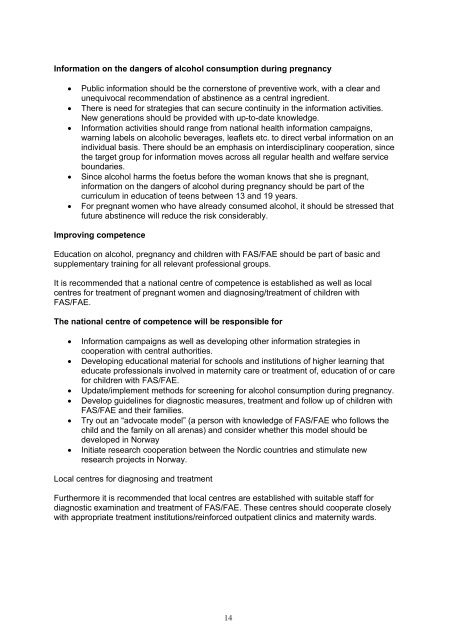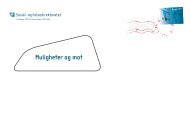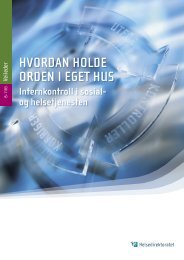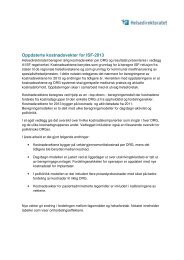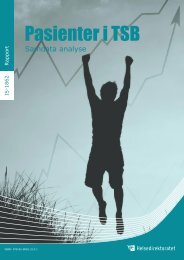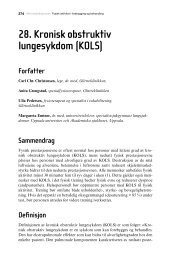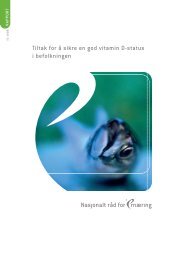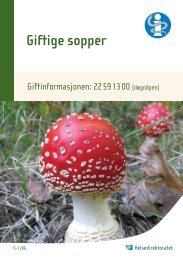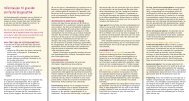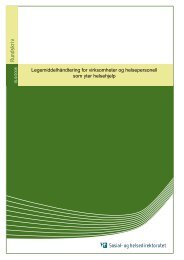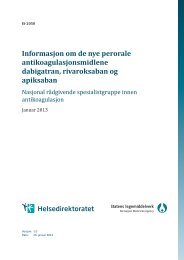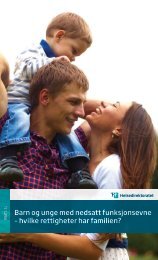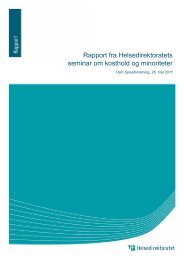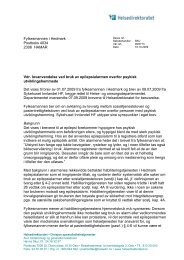Last ned - Helsedirektoratet
Last ned - Helsedirektoratet
Last ned - Helsedirektoratet
Create successful ePaper yourself
Turn your PDF publications into a flip-book with our unique Google optimized e-Paper software.
Information on the dangers of alcohol consumption during pregnancy<br />
• Public information should be the cornerstone of preventive work, with a clear and<br />
unequivocal recommendation of abstinence as a central ingredient.<br />
• There is need for strategies that can secure continuity in the information activities.<br />
New generations should be provided with up-to-date knowledge.<br />
• Information activities should range from national health information campaigns,<br />
warning labels on alcoholic beverages, leaflets etc. to direct verbal information on an<br />
individual basis. There should be an emphasis on interdisciplinary cooperation, since<br />
the target group for information moves across all regular health and welfare service<br />
boundaries.<br />
• Since alcohol harms the foetus before the woman knows that she is pregnant,<br />
information on the dangers of alcohol during pregnancy should be part of the<br />
curriculum in education of teens between 13 and 19 years.<br />
• For pregnant women who have already consumed alcohol, it should be stressed that<br />
future abstinence will reduce the risk considerably.<br />
Improving competence<br />
Education on alcohol, pregnancy and children with FAS/FAE should be part of basic and<br />
supplementary training for all relevant professional groups.<br />
It is recommended that a national centre of competence is established as well as local<br />
centres for treatment of pregnant women and diagnosing/treatment of children with<br />
FAS/FAE.<br />
The national centre of competence will be responsible for<br />
• Information campaigns as well as developing other information strategies in<br />
cooperation with central authorities.<br />
• Developing educational material for schools and institutions of higher learning that<br />
educate professionals involved in maternity care or treatment of, education of or care<br />
for children with FAS/FAE.<br />
• Update/implement methods for screening for alcohol consumption during pregnancy.<br />
• Develop guidelines for diagnostic measures, treatment and follow up of children with<br />
FAS/FAE and their families.<br />
• Try out an “advocate model” (a person with knowledge of FAS/FAE who follows the<br />
child and the family on all arenas) and consider whether this model should be<br />
developed in Norway<br />
• Initiate research cooperation between the Nordic countries and stimulate new<br />
research projects in Norway.<br />
Local centres for diagnosing and treatment<br />
Furthermore it is recommended that local centres are established with suitable staff for<br />
diagnostic examination and treatment of FAS/FAE. These centres should cooperate closely<br />
with appropriate treatment institutions/reinforced outpatient clinics and maternity wards.<br />
14


